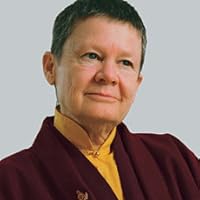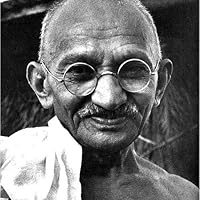Renunciation Quotes
Quotes tagged as "renunciation"
Showing 1-30 of 76

“We can never judge the lives of others, because each person knows only their own pain and renunciation.”
― By the River Piedra I Sat Down and Wept
― By the River Piedra I Sat Down and Wept

“God isn't interested in watching you enact some performance of personality in order to comply with some crackpot notion you have about how a spiritual person looks or behaves. We all seem to get this idea that, in order to be sacred, we have to make some massive, dramatic change of character, that we have to renounce our individuality.”
― Eat, Pray, Love
― Eat, Pray, Love

“an ascetic might be a pauper, but he has ashrams where love, happiness, and prosperity overflow.”
― Saint Richard Parker
― Saint Richard Parker

“Industry, technology, and commerce can thrive only as long as an idealistic national community offers the necessary preconditions. And these do not lie in material egoism, but in a spirit of sacrifice and joyful renunciation.”
― Mein Kampf
― Mein Kampf

“Writing is also like love, if one can't have the courage to be a renunciant, they cannot write well.”
―
―

“Actually, the substitution of the reality-principle for the pleasure-principle denotes no dethronement of the pleasure-principle, but only a safeguarding of it. A momentary pleasure, uncertain in its results, is given up, but only in order to gain in the new way an assured pleasure coming later. But the end psychic impression made by this substitution has been so powerful that it is mirrored in a special religious myth. The doctrine of reward in a future life for the—voluntary or enforced—renunciation of earthly lusts is nothing but a mythical projection of this revolution in the mind. In logical pursuit of this prototype, religions have been able to effect the absolute renunciation of pleasure in this life by means of the promise of compensation in a future life; they have not, however, achieved a conquest of the pleasure-principle this way. It is science which comes nearest to succeeding in this conquest; science, however, also offers intellectual pleasure during its work and promises practical gain at the end.”
― General Psychological Theory: Papers on Metapsychology
― General Psychological Theory: Papers on Metapsychology
“Emotional exhaustion follows fast on the footsteps of physical and mental depletion. I feel my lifeblood draining away in an oily spigot of inner turmoil. Questions abound and personal survival hinges upon sorting through possible solutions and selecting the most fitting answers. Is my pain real or simply an illusion of a frustrated ego? What do I believe in? What is my purpose? I aspire to discover a means to live in congruence with the trinity of the mind, body, and spirit. Can I discover a noble path that frees me from the shallowness of decadent physical and emotional desires? Can I surrender any desire to seek fame and fortune? Can I terminate a craving to punish other persons for their perceived wrongs? Can I recognize that forgiving persons whom offended me is a self-initiated, transformative act? Can I conquer an irrational fear of the future? Can I accept the inevitable chaos that accompanies life? Can I find a means to achieve inner harmony by steadfastly resolving to live in the moment free of angst? Can I purge egotisms that mar an equitable perception of life by renunciation of the self and all worldly endeavors? Can I live a harmonious existence devoid the panache of vanities?”
― Dead Toad Scrolls
― Dead Toad Scrolls
“Although other (yānas) assert that liberation will be achieved by renouncing the objects, one will not be bound by the mere appearances or the mind and the objects (Yul Dang Ch'os-Su sNang-Ba), but will be bound if one attaches (Zhen-Pa) to them. So it is taught (in scriptures) that one should renounce apprehension and attachment. Tilopā said: 'Appearances do not bind, but attachments do. So, Nāropa, cut off the attachments....”
― The Practice of Dzogchen
― The Practice of Dzogchen

“All the same, I'm sure that if one is brave then recovery comes from within, through complete acceptance of suffering and death, and through the surrender of one's will and love of self. But that's no good to me, I like to paint, to see people and things and everything that makes our life—artificial, if you like. Yes, real life would be something else, but I don't think I belong to that category of souls who are ready to live, and also ready to suffer, at any moment.”
― The Letters of Vincent van Gogh
― The Letters of Vincent van Gogh

“It’s not even that you have to drop vain pursuits. God is not asking you to give up your sweeties, your favorite treats. It’s just that you start to lose interest in them.”
― Vaster Than Sky, Greater Than Space
― Vaster Than Sky, Greater Than Space

“Try to understand this rightly. When the powerful renounce, they let go of things that they feel to be worthless, of no value. The weak also renounce, but they renounce whatsoever they feel to be more powerful than themselves.
~ Flight of the Alone to the Alone: Talks on the Kaivalya Upanishad”
―
~ Flight of the Alone to the Alone: Talks on the Kaivalya Upanishad”
―

“All these white folks that move to LA, they don't just come here looking for something. I think they also tryin' to get away from something. They are renouncing something about their white-bread Midwest world, and LA is the temple where they make the blood sacrifice to get their revenge.”
― Reparations Maze
― Reparations Maze

“This is where renunciation enters the picture--renunciation of the hope that our experience could be different, renunciation of the hope that we could be better. The Buddhist monastic rules that advise renouncing liquor, renouncing sex, and so on are not pointing out that those things are inherently bad or immoral, but that we use them as babysitters. We use them as a way to escape; we use them to try to get comfort and to distract ourselves. The real thing that we renounce is the tenacious hope that we could be saved from being who we are. Renunciation is a teaching to inspire us to investigate what's happening every time we grab something because we can't stand to face what's coming.”
― When Things Fall Apart: Heart Advice for Difficult Times
― When Things Fall Apart: Heart Advice for Difficult Times

“Who hath desires must ever fearful be;
Who lives in fear cannot be counted free.”
― The Anatomy of Melancholy
Who lives in fear cannot be counted free.”
― The Anatomy of Melancholy

“I have in all humility felt that perfect renunciation [of fruits] is impossible without perfect observance of ahimsa in every shape and form.”
―
―

“The result of external penance and renunciation is worldly life, meaning that one acquires material pleasures and gradually one even attains the path to liberation. However, there is no liberation without Knowledge of the Self (Atma Gnan).”
―
―

“Consider carefully the merest event: in the best of cases, the positive and negative elements that participate in it balance out; generally the negatives predominate. Which is to say, it would have been preferable that it not take place. We should then have been dispensed from taking part in it, enduring it. What is the good of adding anything at all to what is or seems to be? History, a futile odyssey, has no excuse, and on occasion we are tempted to inculpate art itself, however imperious the need from which it emanates. To produce is accessory; what matters is to draw on one’s own depths, to be oneself in a total fashion, without stooping to any form of expression. To have built great cathedrals derives from the same error as to have waged great battles. Better to try to live in depth than to advance through centuries toward a débâcle.”
― Drawn and Quartered
― Drawn and Quartered

“As it was now evident that the future was to be one of renunciation, of self-forgetting, an oblivion tinged with bitterness, he formlessly reasoned in favor of reconsidering his resolution against Fulkerson's offer.”
― A Hazard of New Fortunes
― A Hazard of New Fortunes
“विरक्ति = Is it the way it is? (Detachment)
वैराग्य = It is the way it is. (Quietness)
सन्यास = It has been & will be the way it is ”
― The Twelfth Preamble: To all the authors to be!
वैराग्य = It is the way it is. (Quietness)
सन्यास = It has been & will be the way it is ”
― The Twelfth Preamble: To all the authors to be!
“Who hath desires must ever fearful be;
Who lives in fear cannot be counted free.”
― The Anatomy of Melancholy; Volume 1
Who lives in fear cannot be counted free.”
― The Anatomy of Melancholy; Volume 1
“And he is not at an age right for renunciation; he has not even entered the stage of the householder, as befits a well educated man; he has not therefore paid back his dues to the gods and to his ancestral spirits and to his fellowmen. Bound by these dues where can he go now? He has no experience at all of women and consequently of samsara. He has not therefore attained any of the purusharthas of life, namely dharma, artha and kama. He has not even rendered personal service to his parents to ensure their comfort. He has not helped his loving relations, nor endowed his dear friends with wealth, nor honoured the wise. He has not shared his wealth with his dependants nor fulfilled the desires of those begging for favours.
"He has not founded his lineage by begetting sons and grandsons. Nor has he performed any great sacrificial rituals. He has not given generous gifts nor fulfilled his obligations of hospitality. He has not done his duty by this world. He has not adorned the earth with dams, wells and water distributing centres, with palaces, ponds and groves. Above all he has not still spread his fame far and wide which alone would live on till the end of the world.”
― Kadambari
"He has not founded his lineage by begetting sons and grandsons. Nor has he performed any great sacrificial rituals. He has not given generous gifts nor fulfilled his obligations of hospitality. He has not done his duty by this world. He has not adorned the earth with dams, wells and water distributing centres, with palaces, ponds and groves. Above all he has not still spread his fame far and wide which alone would live on till the end of the world.”
― Kadambari

“During long cross-country wanders, you do glimpse that freedom of pure renunciation. When you walk for a long time, there comes a moment when you no longer know how many hours have passed, or how many more will be needed to get there; you feel on your shoulders the weight of the bare necessities, you tell yourself that’s quite enough – that really nothing more is needed to keep body and soul together – and you feel you could carry on like this for days, for centuries. You can hardly remember where you are going or why; that is as meaningless as your history, or what the time is. And you feel free, because whenever you remember the former signs of your commitments in hell – name, age, profession, CV – it all seems absolutely derisory, minuscule, insubstantial.”
― A Philosophy of Walking
― A Philosophy of Walking

“It seems absurd for a man of twenty-eight to renounce the pleasures of life, doing violence to his nature by a pure act of will. An untold number had done this before him for religious reasons, but Kafka had based his renunciation on nothing but a self-image. He claimed that for better or worse he was what he was, and that therefore much was out of the question for him”
― Kafka: Die frühen Jahre
― Kafka: Die frühen Jahre
“It takes a few years for a nature which thirsts for strong mutual love and intellectual communion to reach the point of cheerfully and contentedly renouncing what it seeks. I must reach that point, and if God wills, I shall reach it. The more one's own self dies, the more one can be to others, and, renouncing one's own personal desires, live in search of something higher and better.
[Princess Alice, in a letter to her husband Prince Louis, 5 August 1877]”
― Princess Alice: Queen Victoria's Forgotten Daughter
[Princess Alice, in a letter to her husband Prince Louis, 5 August 1877]”
― Princess Alice: Queen Victoria's Forgotten Daughter
“To renounce active life in the world rather than one's own grasping and clinging is to forgo the chance to awaken.”
― Living Skillfully: Buddhist Philosophy of Life from the Vimalakirti Sutra
― Living Skillfully: Buddhist Philosophy of Life from the Vimalakirti Sutra
All Quotes
|
My Quotes
|
Add A Quote
Browse By Tag
- Love Quotes 97k
- Life Quotes 75.5k
- Inspirational Quotes 72.5k
- Humor Quotes 43.5k
- Philosophy Quotes 29.5k
- Inspirational Quotes Quotes 27k
- God Quotes 26k
- Truth Quotes 23.5k
- Wisdom Quotes 23.5k
- Romance Quotes 23k
- Poetry Quotes 22k
- Death Quotes 20k
- Happiness Quotes 18.5k
- Life Lessons Quotes 18.5k
- Hope Quotes 18k
- Faith Quotes 18k
- Quotes Quotes 16.5k
- Inspiration Quotes 16.5k
- Spirituality Quotes 15k
- Religion Quotes 15k
- Motivational Quotes 15k
- Writing Quotes 14.5k
- Relationships Quotes 14.5k
- Life Quotes Quotes 14k
- Love Quotes Quotes 13.5k
- Success Quotes 13.5k
- Time Quotes 12.5k
- Motivation Quotes 12k
- Science Quotes 11.5k
- Knowledge Quotes 11k





